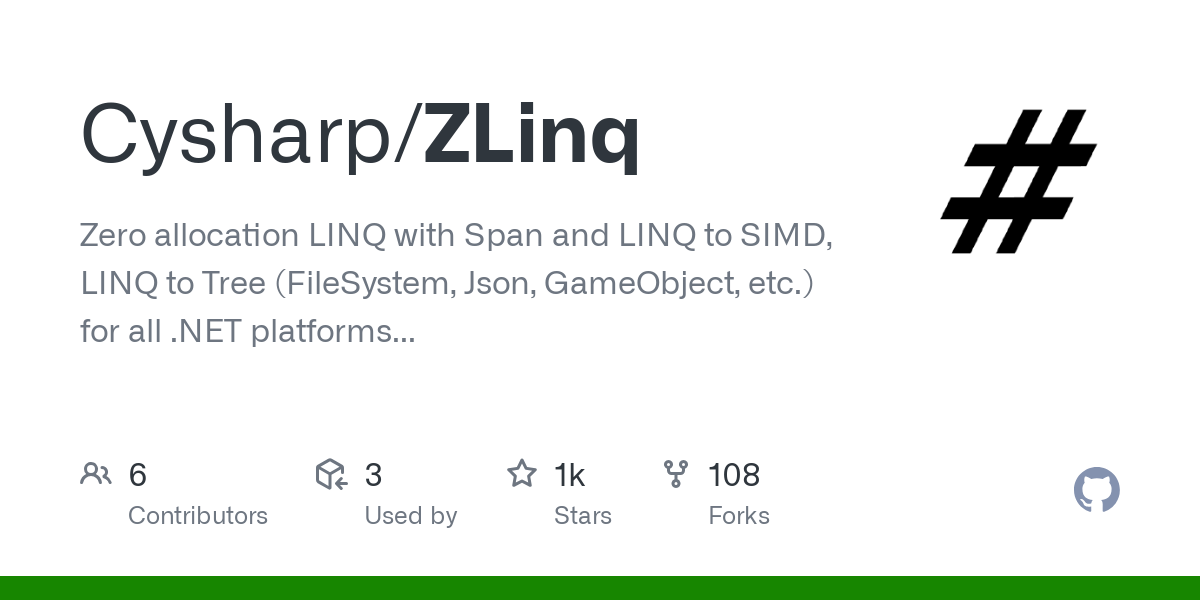I’ve recently discovered this project, which assuming it works as advertised (which I think wasn’t really tested yet, since it seems to be a pretty new repo) sounds like a pretty good library to add into your toolbox.
For those that do not know, LINQ is basically a query language over collections in C#, that allows you (from the top of my head) to do stuff like
someList.Where(x => x.value < 10).OrderBy(x => x.priority).Select(x => x.name)
which would give you a IEnumerable list with names of elements where value is smaller than 10, ordered by priority.
However, using LINQ in performance critical code, such as per-frame Updates, is not really a good idea because it unfortunately does generate a lot of garbage (allocations for GC to collect). Having a version that doesn’t allocate anything sounds awesome, assuming you are a fan of LINQ.
What are your thoughts? For me, it sounds like something really useful. While it’s not really that difficult to avoid LINQ, I’m a fan of the simplicity and descriptive nature of the syntax, and not having to avoid it would be great. It does seem there are quite a few issues starting to pop up, but it’s definitely a project that could be worth it to follow.



Do you know how Zlinq does avoid allocations? I do understand that if you map, let’s say from Integer to Integer, that you could do this in-place. But what about a mapping Integer to String?
My interpretation, without having used ZLINQ or actually analyzed it in-depth:
Zero allocations must be for the byte-/data-span traversal. When you transform them to deserialized interpreted data you can’t avoid allocations.
It’s useful when you’re reading / querying from linear data, avoiding the whole LINQ provider accumulation and translation phase.